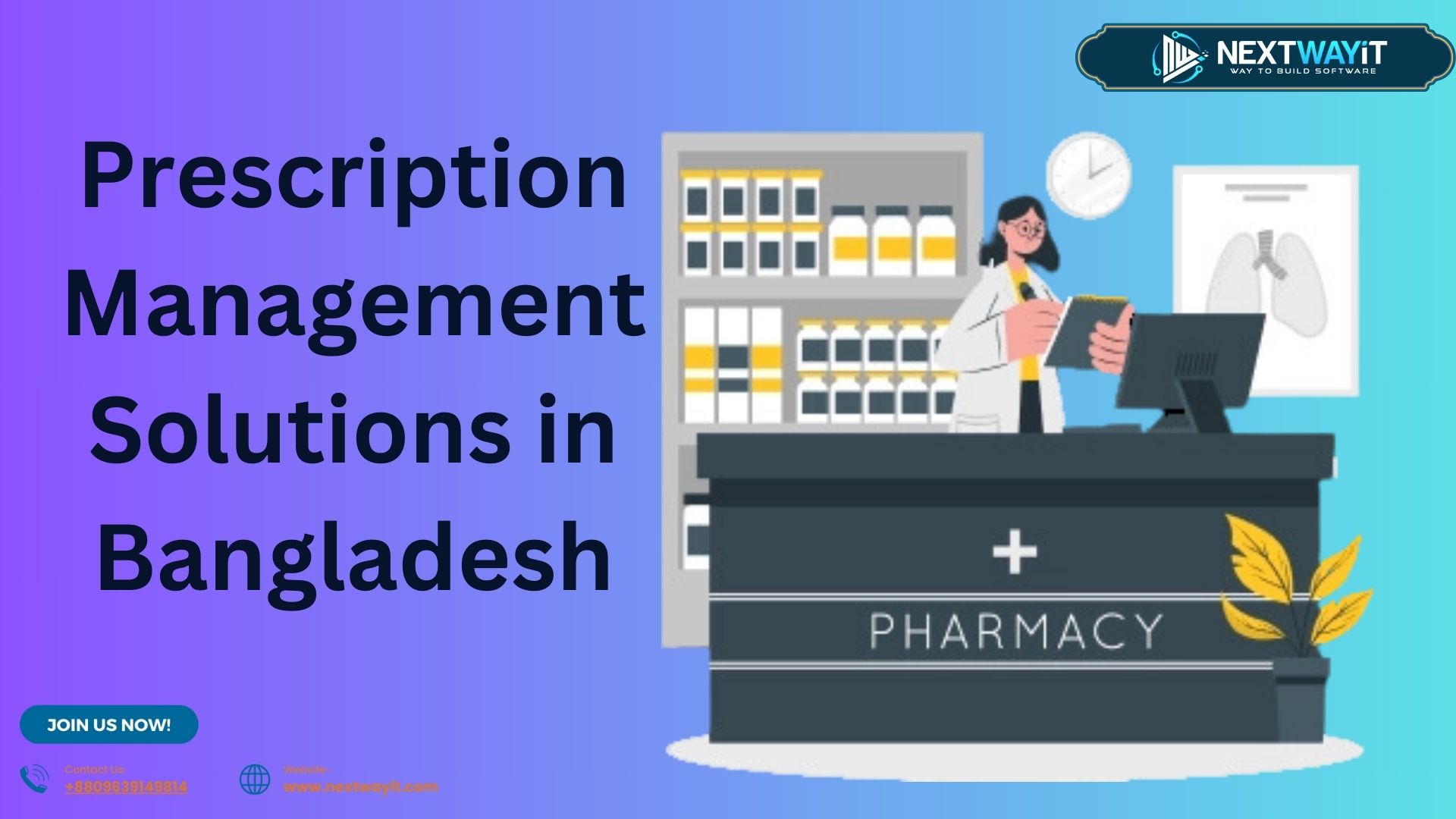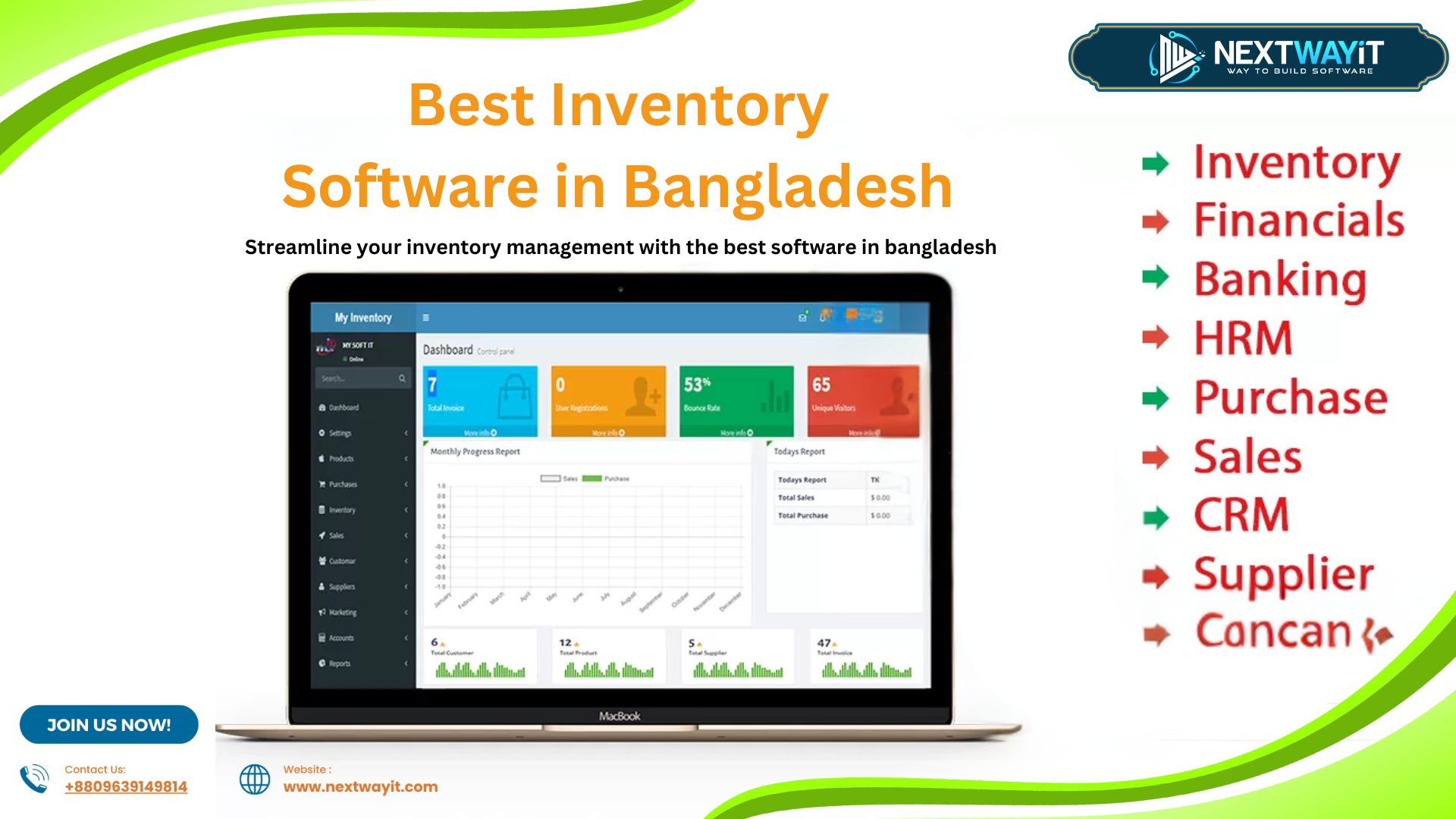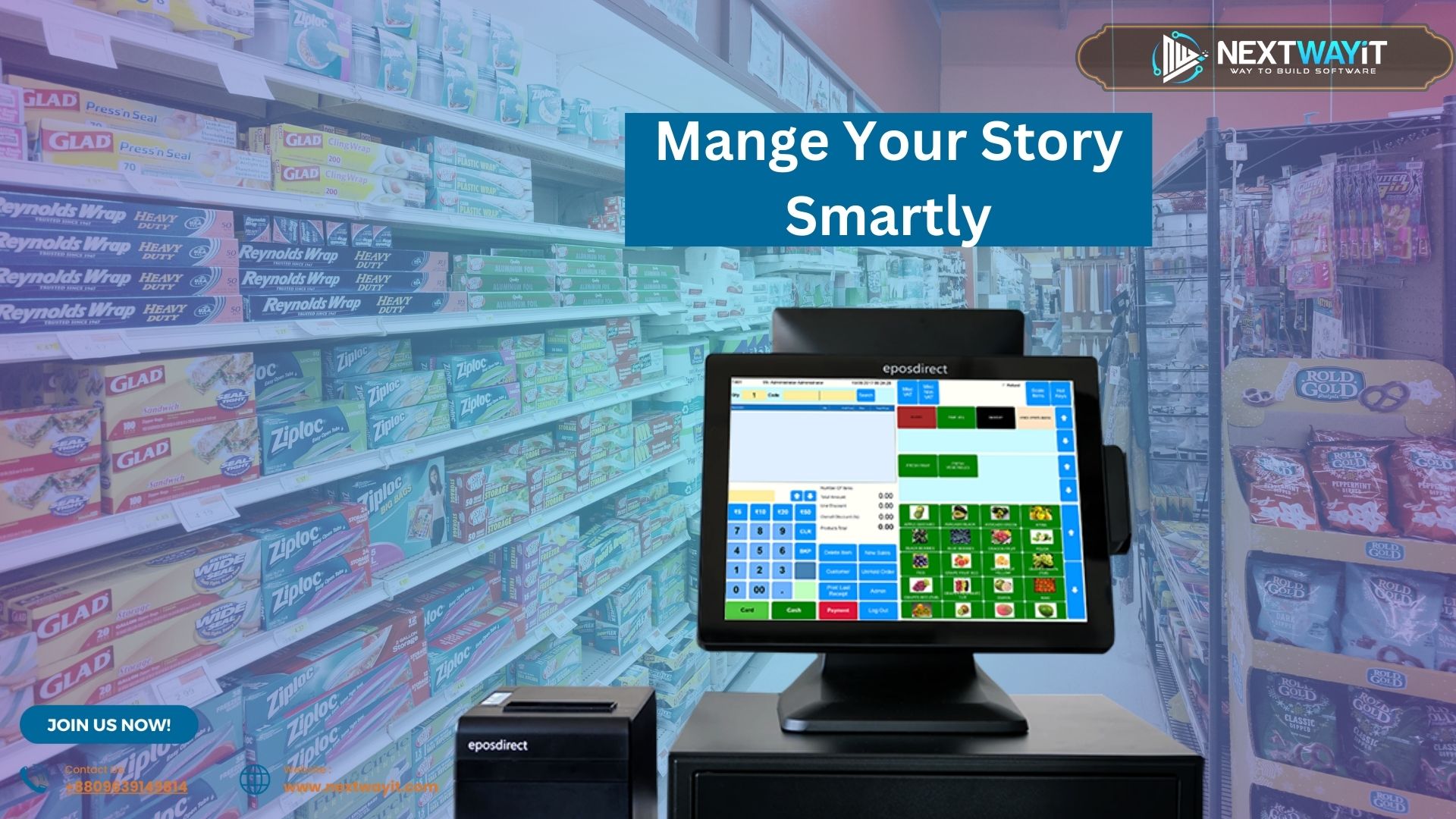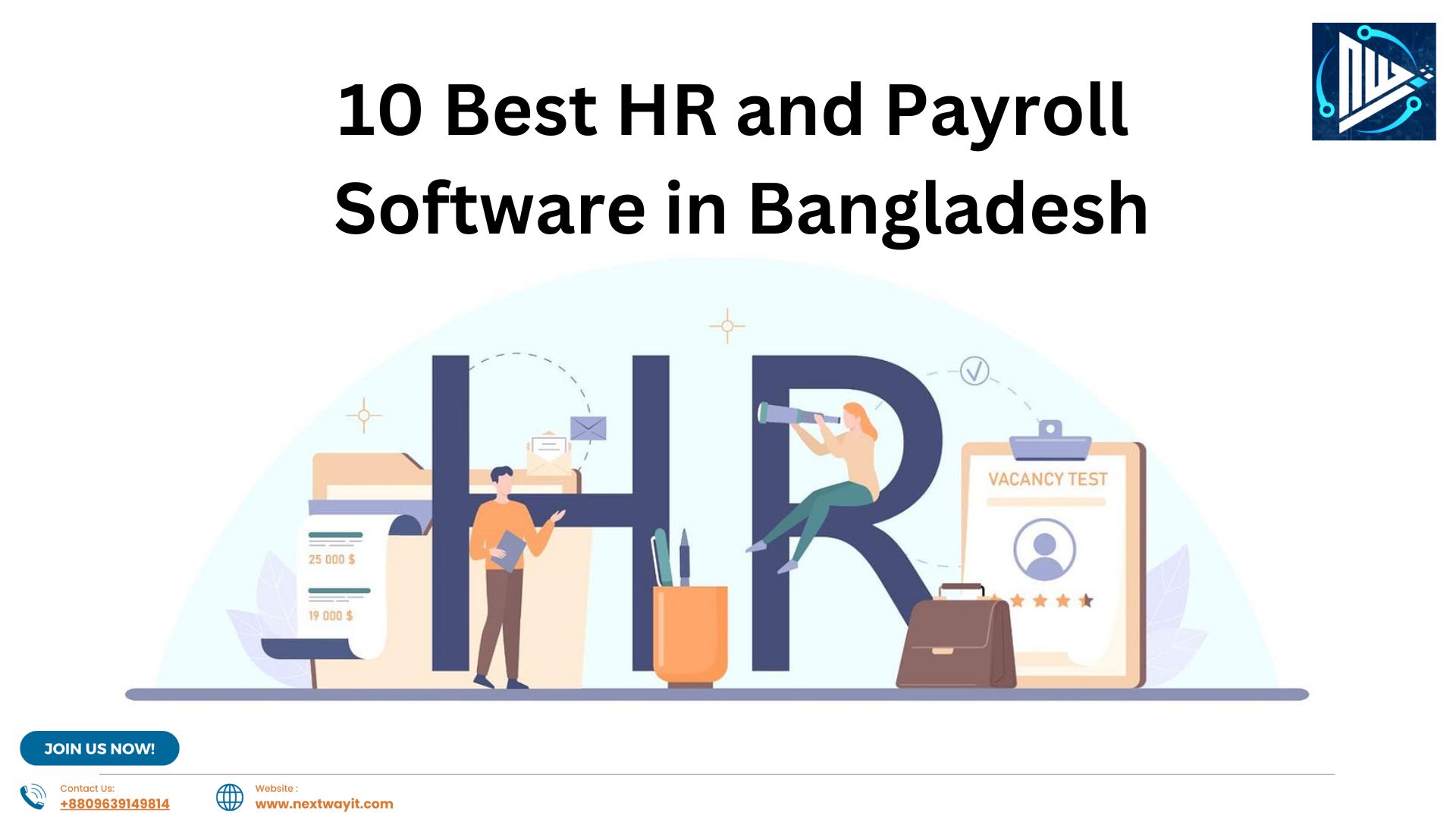
Prescription Management Solutions in Bangladesh: Enhancing Efficiency and Patient Care
Prescription management solutions are becoming essential tools in modern healthcare, especially in developing countries like Bangladesh. These solutions facilitate the efficient and accurate handling of prescriptions, making the entire process seamless—from the moment a doctor prescribes a medication to when the patient receives it from the pharmacy. With advancements in healthcare technology, prescription management solutions are playing a crucial role in streamlining operations, improving patient safety, and ensuring better compliance with medical treatments.
In this article, we will delve into the features, benefits, challenges, and future of prescription management solutions in Bangladesh, as well as how companies like Nextway IT are contributing to this growing sector.
- What Are Prescription Management Solutions?
Prescription management solutions are software platforms that allow healthcare providers to electronically manage, track, and dispense prescriptions. These systems replace the traditional paper-based prescription process, making it easier for doctors, pharmacists, and patients to handle medications. The software integrates patient health records, medication history, and pharmacy inventory, enabling accurate and efficient prescription generation and fulfillment.
Key Components:
- E-prescribing (Electronic Prescriptions): A digital process through which healthcare providers can send prescriptions directly to pharmacies, eliminating the need for physical paper slips.
- Drug Interaction Alerts: Automatically checks for potential drug interactions or allergies, alerting physicians to avoid harmful combinations.
- Real-time Access: Doctors, pharmacists, and patients have real-time access to prescription records, ensuring better communication and continuity of care.
- Medication Tracking: Keeps track of patient medication history, ensuring accurate dosage and refills.
- Patient Engagement: Features such as reminders for refills, dosage schedules, and access to prescription histories help improve patient adherence to prescribed treatments.
- Why Prescription Management Is Essential for Bangladesh’s Healthcare
Bangladesh’s healthcare sector is facing several challenges, including overcrowded hospitals, insufficient healthcare professionals, and medication errors due to manual processes. These problems can lead to delays in patient care, incorrect medication, and poor patient outcomes. Prescription management solutions address these challenges by providing automated tools that reduce the burden on healthcare workers, minimize errors, and speed up the medication process.
Key Benefits for Bangladesh:
- Reduction in Human Errors: Traditional handwritten prescriptions can be difficult to read and are prone to errors. Electronic systems eliminate these risks.
- Faster Processing: With the ability to send prescriptions directly to pharmacies, the time between a doctor’s diagnosis and the patient receiving their medication is reduced.
- Improved Patient Safety: Alerts for drug interactions, allergies, and dosage issues help ensure patients are prescribed the safest medications.
- Increased Access to Healthcare: In rural areas where access to specialists is limited, digital systems enable healthcare workers to deliver high-quality care more efficiently.
- Challenges in Implementing Prescription Management Solutions in Bangladesh
Despite the numerous benefits, implementing prescription management solutions in Bangladesh presents several challenges. These obstacles need to be addressed to ensure successful adoption and usage of the systems across the country.
Major Challenges:
- Lack of Technological Infrastructure: Many rural healthcare facilities in Bangladesh lack the basic technological infrastructure, such as internet connectivity and modern hardware, needed to implement such solutions. Without these, the adoption of prescription management systems becomes difficult.
- Limited Digital Literacy: Healthcare professionals, especially in smaller towns and rural areas, may not be familiar with digital tools. This can lead to resistance in adopting new technology and difficulty in using the systems effectively.
- Initial Costs: The cost of purchasing software, training staff, and setting up the infrastructure can be prohibitive for smaller hospitals and clinics. Although prescription management solutions save money in the long run, the initial investment may deter some institutions from adopting them.
- Data Security Concerns: As with any system dealing with sensitive patient information, data security is a major concern. Healthcare providers need to ensure that the prescription management solutions they use comply with data privacy laws and are secure against cyberattacks.
- How Prescription Management Solutions Benefit Healthcare Providers
For healthcare providers, prescription management systems offer an array of advantages that improve the quality of care they provide while optimizing their operations.
Key Benefits for Healthcare Providers:
- Streamlined Workflow: With integrated prescription management systems, doctors can easily access patient records, prescribe medications, and communicate with pharmacies in one place. This reduces the time spent on administrative tasks.
- Fewer Prescription Errors: The system’s ability to flag potential issues such as incorrect dosages, drug interactions, and patient allergies helps minimize errors, improving patient safety.
- Compliance with Healthcare Standards: Prescription management systems help ensure compliance with healthcare regulations and protocols, such as accurately documenting patient treatment and storing prescription information securely.
- Enhanced Coordination Among Care Teams: Prescription management solutions integrate seamlessly with electronic health records (EHR) systems, allowing doctors, nurses, pharmacists, and other healthcare workers to collaborate more effectively.
- Data Analytics and Reporting: Healthcare providers can analyze prescription data to gain insights into patient behavior, medication efficacy, and healthcare trends, helping them make more informed decisions.
- The Role of Prescription Management Solutions in Improving Patient Care
Prescription management solutions are a game-changer for patient care. By improving medication accuracy, reducing wait times, and increasing patient engagement, these systems enhance the overall healthcare experience.
Benefits for Patients:
- Medication Accuracy: Electronic systems eliminate the risk of misreading handwritten prescriptions, ensuring that patients receive the correct medication.
- Faster Access to Medications: With e-prescriptions, patients can skip the hassle of carrying physical prescriptions to pharmacies. Instead, they can pick up their medication directly after the doctor prescribes it.
- Better Adherence to Treatment Plans: Patients are more likely to follow their treatment plans when they receive reminders for refills and dosage schedules through the system.
- Improved Transparency: Patients have access to their medication history, which helps them understand their treatment better and empowers them to take control of their health.
- Convenience for Rural Patients: Prescription management systems also benefit rural patients by allowing them to consult with doctors remotely and have their prescriptions sent to the nearest pharmacy without needing to travel long distances.
- Implementing Prescription Management Solutions in Bangladesh
Some hospitals and clinics in Bangladesh, especially in urban areas like Dhaka and Chittagong, have successfully implemented prescription management systems. Private hospitals have been quicker to adopt these solutions, recognizing their potential to improve patient care and streamline operations.
For example, leading healthcare providers such as Apollo Hospitals and Square Hospitals have introduced advanced digital systems, including prescription management, to enhance their services. In contrast, smaller clinics are gradually adopting these solutions as more affordable and tailored software becomes available.
Companies like Nextway IT are developing prescription management solutions that cater specifically to the needs of the Bangladeshi healthcare sector, offering customizable features that can be scaled according to the size of the facility. This makes the technology more accessible to hospitals and clinics across the country, including those in rural areas.
- Technological Advancements in Prescription Management
The landscape of prescription management solutions is constantly evolving, with new technologies being integrated to improve efficiency and patient outcomes. In Bangladesh, the adoption of cloud-based systems and mobile apps is expected to rise, making prescription management even more accessible and efficient.
Future Technological Developments:
- Cloud-based Systems: These systems allow healthcare providers to access patient data and prescription records from anywhere, reducing the need for on-site infrastructure and making it easier for rural clinics to adopt the technology.
- Mobile Applications: Mobile apps offer patients real-time updates on their prescriptions, medication reminders, and easy access to refill requests. This convenience makes it easier for patients to adhere to their treatment plans.
- Artificial Intelligence (AI): AI-powered tools can analyze patient data and suggest more accurate medication regimens based on their health history, improving outcomes.
- Telemedicine Integration: Prescription management systems can be integrated with telemedicine platforms, allowing doctors to prescribe medications during virtual consultations and send e-prescriptions directly to pharmacies, which is especially beneficial in rural areas.
- Government Initiatives and Support
The government of Bangladesh has recognized the importance of digital healthcare solutions and is taking steps to encourage their adoption. The Digital Bangladesh initiative, which aims to improve the country’s technological infrastructure, has set the foundation for widespread adoption of prescription management systems in both urban and rural areas.
Key Government Initiatives:
- Digitization of Health Records: The government is promoting the use of electronic health records (EHR) and prescription management systems in public hospitals to improve efficiency.
- Public-Private Partnerships: Collaborations between government entities and private companies like Nextway IT are fostering the development and implementation of affordable, scalable solutions for the healthcare sector.
- Training Programs: Government-supported training programs for healthcare professionals are helping to build digital literacy and encourage the adoption of new technologies in hospitals and clinics across the country.
- Conclusion: A Brighter Future for Healthcare in Bangladesh
Prescription management solutions represent a critical advancement in Bangladesh’s healthcare landscape, offering numerous benefits to healthcare providers and patients alike. With streamlined workflows, reduced medication errors, and improved patient engagement, these systems are transforming how prescriptions are managed, ultimately leading to better patient outcomes.
The challenges of implementing prescription management systems, such as cost, infrastructure, and digital literacy, can be overcome with government support, technological advancements, and the efforts of companies like Nextway IT. As more hospitals and clinics in Bangladesh adopt these solutions, the country’s healthcare system will continue to evolve toward a more efficient, patient-centered future.



